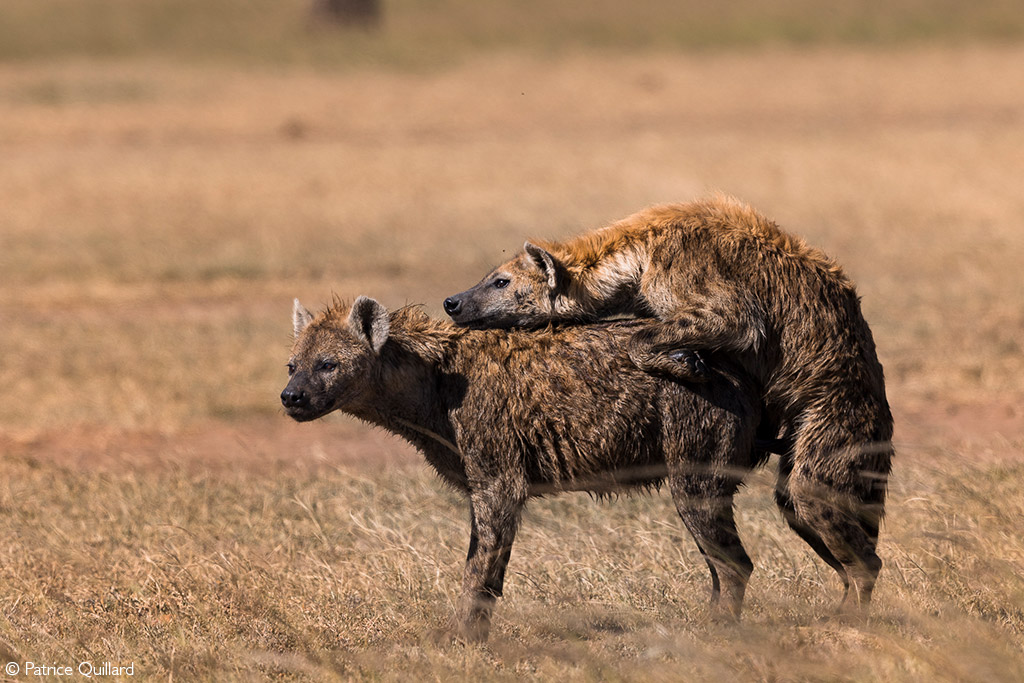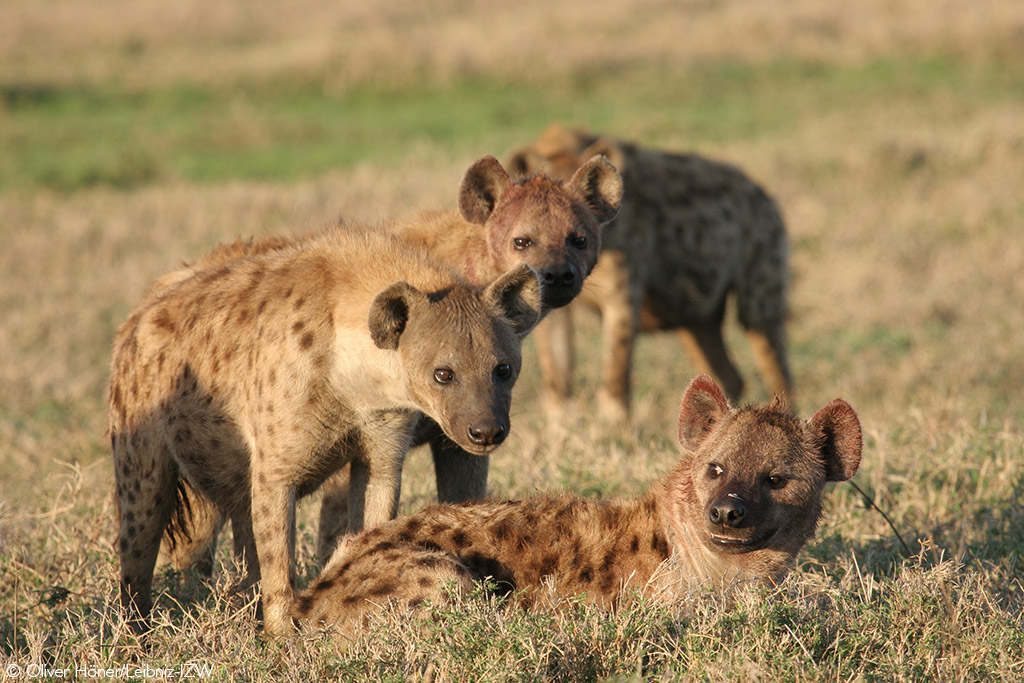When hyena sex goes wrong (and boy, does it), it’s hard not to cackle just a little.

Researchers with Tanzania’s long-running Spotted Hyena Project have seen their share of weird and wonderful hyena behaviour – studying the eight clans that inhabit the country’s Ngorongoro Crater region, they say, is a bit like watching “Game of Thrones”. Indeed.
The spotted male suitor in this encounter is known to the team as “Jage”, and things should have gone much better for him: after months of courting, he’d finally won over a high-ranking female in his clan. The only problem? Jage had gorged himself earlier in the day, and it turns out bloated bellies can get in the way of mating prowess – especially when a certain level of coordination is required.

Behavioural ecologist Eve Davidian explains over at the Hyena Project blog:
It should be pointed out that mating is a very tricky task for male spotted hyenas because females’ private parts are masculinized into a pseudo-penis. This means that reaching seventh heaven requires full cooperation from the female – she has to stand still, put her head down and retract her pseudo-penis. But even when the female does cooperate, the male still has to show great acrobatic skills. It does take males some time and practice to get it right, and those with little experience usually are clumsy and sorely try the female’s patience.
Clearly, Jage’s breakfast binge ensured the required level of acrobatic skill was nowhere to be seen. According to Davidian, there was no sign of cubs four months later (that’s the gestation period for female spotted hyenas), suggesting he’d missed his chance.
“[Jage] wanted it all, to feast and to mate, but he learnt the hard way that one sometimes has to choose,” she adds.

For animals, reproduction is a biological imperative, an instinct to pass their genetics onto the next generation. This translates into a complex dance of competition, dominance, and courtship for the males of the species. The process is even more fascinating in spotted hyena clans, with their hierarchies and intricate systems of power-plays and alliances. Long-term behavioural research and hormone analysis by the Hyena Project in Tanzania reveal further insight into the complicated romantic lives of spotted hyenas.
As is the case with the females, every individual male hyena in a clan has a particular rank, with immigrant males finding themselves at the bottom of the clan hierarchy. Status and dominance equate to better access to both food and females. The researchers’ questions set out to answer related to how this social rank influences an individual’s reproductive success. Were high ranked males more successful because they are stronger and fitter and, therefore, a more attractive mate choice likely to produce sturdy offspring? Or, given the intricacies of hyena society, was the reason more complex? The results of the research indicate the latter.
Due to the clan hierarchy and their unique genital structure, female spotted hyenas control the process of mate selection entirely. Extended courtships are the order of the day for hopeful males, and they will nurture their relationships with certain females, sometimes for years at a time. The supplicant male will do everything in his power to convey his intentions to a receptive female, bowing and scraping in a comic display of humility. If he is successful, she may just allow him to mate with her. According to the study results, high-ranked females are more in demand than those of a lower rank, which is to be expected given the benefits conferred on offspring of higher-ranked females (“the silver spoon effect”).

Naturally, this intensive courtship requires both time and energy, things that the study indicates are in shorter supply for lower-ranked males. In collecting over 400 samples of fresh hyena scat, the researchers analysed levels of faecal glucocorticoid metabolite concentrations – cortisol, a stress hormone – to estimate the psychological effects of social interactions between clan individuals. The results indicate that male-male interactions are more stressful for the low-ranking males than for high-ranking ones. These interactions are an inevitable part of everyday life for spotted hyenas. The males are obliged to maintain relationships with clan-mates but low-ranked males, understandably, spend more time on their own, avoiding stressful situations. In essence, low ranked individuals invest less time in sexual activities, social activities and spend more time away from clan mates.